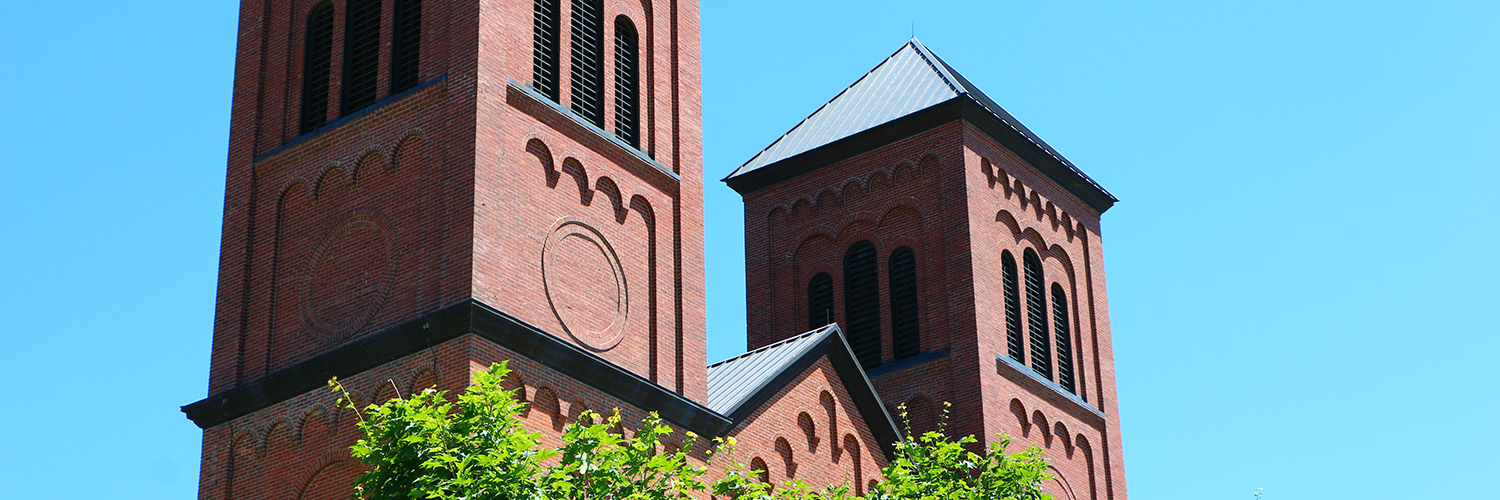
History & Mission
Mission Statement
The Mission of Conception Seminary College is the preparation of candidates for the ordained ministry in the Roman Catholic Church, through human, spiritual, intellectual, and pastoral formation in the Benedictine tradition.
In order to fulfill its mission, Conception Seminary College seeks to:
- provide a holistic approach to education, where intellectual, spiritual, pastoral, and human formation programs complement one another;
- respond to the needs of the Church in preparing its prospective ministers;
- provide the human, financial, and learning resources essential to its formational endeavors; and
- maintain a qualified faculty, a useful and supportive library, and effective administrative practices.
History
"Therefore, we intend to establish a school for the Lord’s service." Rule of St. Benedict: Prologue: 45
It is a long-standing tradition that Benedictine monks operate schools. Conception Abbey has continued that tradition since its founding in 1873. The 1882 charter which incorporated Conception Abbey under Missouri law solidified that commitment saying the monks would conduct a school: “a college and a seminary, fostering and promoting intellectual science and arts, and encouraging agricultural and other useful industries.”
In 1883, the Abbey’s founder Abbot Frowin Conrad decided to open a small school modeled on the European gymnasium (high school). Seven boarders and six-day students enrolled that year. "Omne initium durum," the abbot wrote in his diary, "All beginnings are hard."
What would later become known as Conception Seminary College was founded on July 2, 1886, under the name College of New Engelberg. The school building, St. Damian’s Hall, was dedicated on January 27, 1887, and classes were offered at the high school and junior college levels, with a choice between a “classical” and “commercial” curriculum. Four years later the college began granting degrees.
During the subsequent years, class sizes grew rapidly, faculty credentials improved and science labs, sports teams and honor societies were developed. By 1915 the college enrolled 118 students. A dramatic move in 1942 changed the scope and transformed the future of education at Conception. Under the guidance of Abbot Stephen Schappler, the Abbey Chapter decided to change the school’s name to Conception Seminary and restrict enrollment to candidates for the priesthood. Abbey leaders recognized that other Catholic schools in the region could better serve the general student population, and Catholic bishops were voicing their desire for a seminary. The seminary was expanded to a 12-year institution, including a preparatory high school, a junior college, a senior college and a school of theology. By 1956 increased enrollment and a change in focus led to the transfer of the high school division to a new Benedictine monastery, founded by Conception, near Omaha.
The seminary’s enrollment peaked at 549 students in 1965, but with the Second Vatican Council reforms, which opened new ministries to lay people, and the sweeping social unrest of the ’60s, enrollment began a steady decline into the 1970s. In 1972, it was decided to close the school of theology to focus resources on the undergraduate program.
Conception Seminary College, as the school was renamed, continued to offer a diverse educational experience, but increased opportunities for leadership and inaugurated a stronger formation program. A Pre-Theology Program – which provides formation as well as added philosophy, theology and liberal arts education to students preparing for theology school – was added in 1982. Again adapting to changes in the Church, Conception in 1998 added the Language, Culture and Church program. Designed for seminarians from non-English-speaking lands, it provides those students with English-language skills and assistance in adapting to the Church in the United States, where they hope to someday minister.
Today, Conception Seminary College remains the resilient, focused institution that weathered the changing social winds of the past century. While many seminaries around the nation have struggled and closed, Conception has thrived by continually offering young men the opportunity to explore the mystery and promise of God’s call to the priesthood. Conception Seminary College has educated almost 75 percent of the active diocesan priests in the Diocese of Kansas City-St. Joseph, and approximately 31 percent in the Archdiocese of Kansas City in Kansas.

